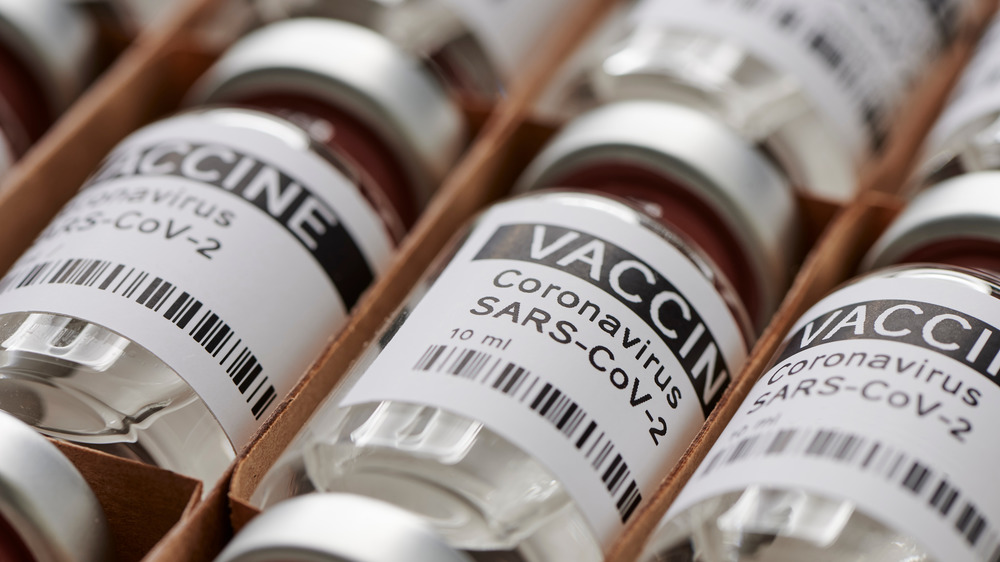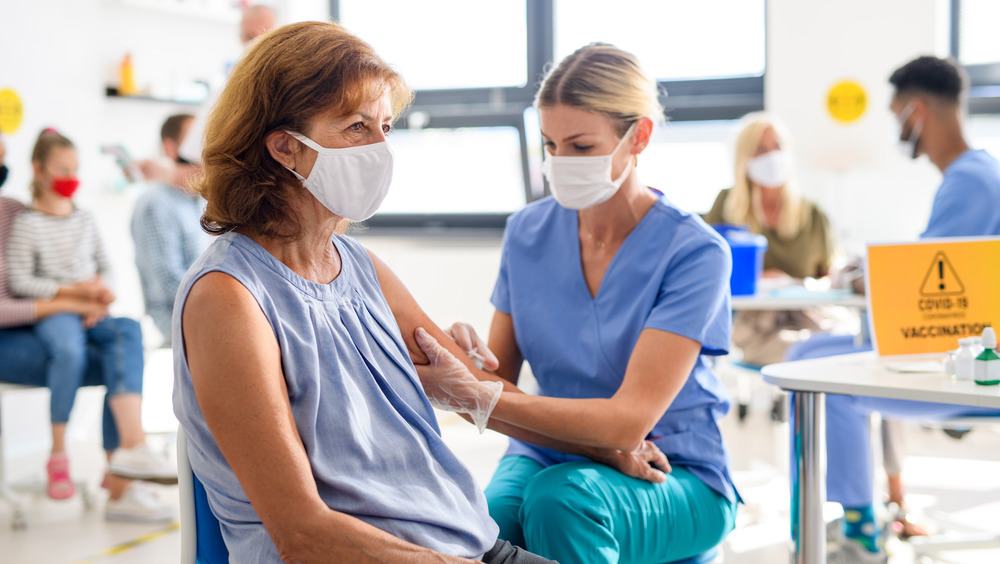What Happens If You Skip The Second Dose Of The COVID-19 Vaccine
After months of uncertainty, the COVID-19 vaccine rollout is finally well underway. Around 9.5 percent of Americans have received their first dose of either the Pfizer-BioNTech or Moderna vaccines so far, but, according to The New York Times, many are having difficulty scheduling an appointment for a second dose.
The Pfizer vaccine requires a second dose to be administered 21 days after the first dose, while the two doses of the Moderna vaccine should be administered 28 days apart. So what happens if your appointment for your second dose is delayed or you end up missing it completely?
While it's still unclear exactly how long is too long to go between doses, it's okay if you get your second dose a little later than expected. "The CDC has gone on record to state that you can safely get the second dose about 42 days out for Moderna and Pfizer ― you can also get it a couple of days earlier as well," Dr. Kavita Patel, an internal medicine physician in Washington, D.C., told HuffPost. "If it's more than 90 days, I would imagine some might recommend restarting. But given supply issues, people should get it when they can."
Don't miss the second dose of the COVID-19 vaccine
Getting your second dose of the COVID-19 vaccine a few weeks later than anticipated may be nothing to panic about, but you shouldn't willfully skip out on the second injection. The first dose of the Pfizer vaccine is only 52 percent effective and the Moderna vaccine is 80 percent effective after the first shot, whereas both vaccines have a 95 percent efficacy rate after the second shot.
While the first dose of either vaccine will likely stimulate an immune response, both shots are needed to reach full immunity. That's because the second dose is a booster shot — an additional dose of a vaccine that essentially boosts the immune system through re-exposure to the virus.
"People who receive only one shot or a delayed second shot may not be as well-protected from COVID-19," Dr. Bob Bollinger, a professor of infectious diseases at Johns Hopkins University and founding member of emocha health, told Bustle. "It is also possible that receiving only one shot or delaying the second could mean a shorter duration of protection."


